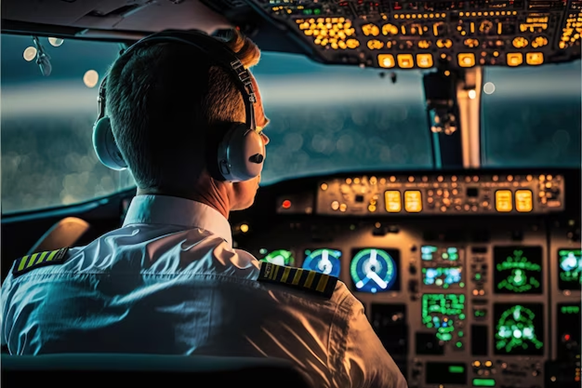Pilot and Flying Science Program
This has three programs: private pilot, commercial pilot, and fly instructor; each program is optional and prepares students for an aviation career and complies with FAA regulations for pilot training. Our program provides students with the necessary knowledge and skills to become a professional pilot and flight instructor, adhering to the FAA’s rigorous training and certification standards. It provides students with the necessary knowledge and skills to become a professional pilot and flight instructor, adhering to the FAA’s rigorous training and certification standards.
In addition:
- The duration of the program varies based on individual student progress and flight hour requirements set by the FAA.
- Flight training includes practical flight hours required for each certification, including solo flight and dual instruction.
- The program prepares students for FAA knowledge tests and check rides for each certification.
- Compliance with FAA regulations is essential for the successful completion of the program and career readiness as a pilot.

Diploma in Pilot and Flying Science Program
Trimester 1:
AIRGRO 100; Ground School
- Introduction to Aviation and Aeronautics
- Aviation Regulations and Procedures
- Navigation and Meteorology
- Aircraft Systems and Maintenance
Trimester 2:
AIRFLY 100: Flight Training
- Pre-flight Inspection and Procedures
- Basic Flight Maneuvers
- Cross-Country Flying
- Emergency Procedures
Trimester 3:
AIRGRO 102: Ground School
- Instrument Flight Rules (IFR) Procedures
- Instrument Navigation and Communication
- Advanced Meteorology and Weather Analysis
- Air Traffic Control Operations
Trimester 4:
AIRFLY 102: Flight Training
- Instrument Flight Training
- Radio Navigation
- Holding Procedures and Approaches
- IFR Cross-Country Flights
Trimester 5:
AIRFFY 103: Ground School
- Advanced Aircraft Systems and Operation
- Commercial Pilot Regulations and Ethics
- Aerodynamics and Flight Mechanics
- Aviation Safety and Emergency Procedures
Trimester 6:
AIRFLY104: Flight Training
- Commercial Flight Training
- Complex Aircraft Handling
- Advanced Navigation and Cross-Country Flights
- Night and Multi-Engine Operations
Trimester 7:
AIRGRO 103: Ground School
- Flight Instructor Fundamentals
- Teaching Techniques and Pedagogy
- Advanced Aviation Instruction
- Human Factors in Aviation
Trimester 8:
AIRFLY 105: Flight Training
- Flight Instructor Flight Training
- Instrument Flight Instructor Training
- Flight Instructor Checkride Preparation
- Graduation and Career Development
Students have to contact the school administration if they want to take extra credits or transfer credits to pursue the Diploma Certificate or Associate of Applied Science (A.A.S.) Degree in their field of interest. Students will select required number courses in each of the areas listed to meet general education requirements graduation for the A.A.S. Some of these courses can be transferred directly from and to the university system and may be substituted for recommended courses on the outline. Students should speak with an advisor before doing so these selective courses are required for all students.
- Selected Communication Course (Choose two for Diploma or three for the Associate)
ENGL 100: Fundamentals of Speech
CPL 100: Career Planning
CPL 101: Communications and Career Strategies
ENGL 101: Composition
ENGL 102: composition
- Selected Mathematics Course (Choose two for Diploma or three for the Associate)
MATH 100:General Math
MATH 101:Intermediate Algebra
MATH 102:College Algebra
- Selected Social Science Course (Choose two for Diploma or four for the Associate)
ECON 105:Leadership
ECON 101:Principles of Microeconomics I
ECON 102:Principles of Macroeconomics II
SOC 101:Introduction to Sociology
PSYC 101: Introduction to Psychology
HIST 101: History
